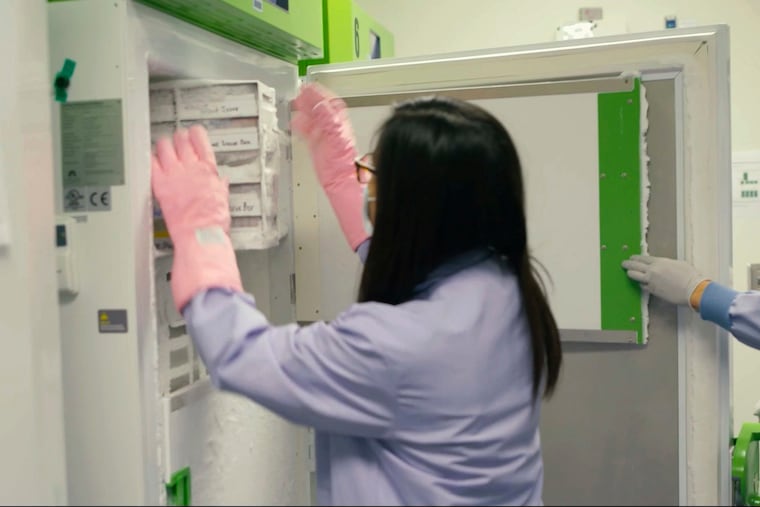Wealthy patients scramble for COVID-19 vaccine: ‘If I donate $25,000 ... would that help me?’
California’s stern messaging about serving the neediest first hasn’t stopped the rich from trying to leap ahead of teachers, farm workers and firefighters.

LOS ANGELES – They’re offering tens of thousands of dollars in cash, making their personal assistants pester doctors every day, and asking whether a five-figure donation to a hospital would help them jump the line.
The COVID-19 vaccine is here — and so are the wealthy people who want it first.
“We get hundreds of calls every single day,” said Ehsan Ali, who runs Beverly Hills Concierge Doctor. His clients, who include Ariana Grande and Justin Bieber, pay between $2,000 and $10,000 a year for personalized care. “This is the first time where I have not been able to get something for my patients.”
With the first doses in short supply, California has laid out a strict order of vaccinations based on need and risk: Health-care workers and nursing home residents, then essential workers and those with chronic health conditions, then, finally, everyone else.
But to those with power, money, and influence, rules can always be bent. California’s stern messaging about serving the neediest first hasn’t stopped the rich from trying to leap ahead of teachers, farm workers, and firefighters.
» READ MORE: Pence, top congressional leaders get COVID-19 vaccines
Physician Jeff Toll, who has admitting privileges at Cedars-Sinai Medical Center, one of the first hospitals to stock the vaccine, recalled a patient asking: “If I donate $25,000 to Cedars, would that help me get in line?’” Toll said no.
Watchdogs have been warning that the COVID-19 vaccine’s initial scarcity could create a thriving black market, particularly if well-connected people in the health-care industry skim off a few doses here and there for friends, family, or the highest bidder.
But getting earlier access to the shot may not even require much backroom deal-making. Some wealthy patients may get the shots sooner than the average person because they’re members of exclusive health-care groups that offer the kind of high-quality, primary care most Americans can’t afford.
Those patients are already on waiting lists with concierge doctors who charge as much as $25,000 a year for 24-hour access to top-notch care, which includes working to get their clients vaccinated as soon as it's available.
Concierge practices are fielding frantic, repeated phone calls from well-heeled clients and their assistants. They're busy assembling lengthy patient files with medical histories and potential COVID-19 risks.
And they're snapping up expensive, ultra-low temperature freezers, which are in short supply, to store the Pfizer and BioNTech vaccine, which must be kept at minus 94 degrees Fahrenheit.
Doctors in boutique practices say they'll adhere to public health guidelines in determining who gets priority. But being on a waiting list at a practice that has special freezers and other high-quality resources means you're already near the front of the line once the supply opens up.
Representatives for Pfizer and Moderna, whose vaccine is expected to be authorized this week, said doctors and private citizens cannot buy doses from them yet. The U.S. government is controlling the allocation of doses to all 50 states.
Until the vaccine is available to nongovernmental buyers, concierge doctors are in the unusual position of telling their demanding patients that, for now, they will just have to wait.
That hasn't stopped patients from trying.
“People are willing to pay tens of thousands of dollars,” said Toll. His private concierge practice in Los Angeles starts at $5,000 a year and can go as high as $25,000.
The pattern is familiar in a state where Hollywood stars and Silicon Valley executives are accustomed to getting their way. Gov. Gavin Newsom, who made his own blunder by dining without a mask at the French Laundry in Napa Valley, has warned that California will be “very aggressive in making sure that those with means, those with influence, are not crowding out those that are most deserving of the vaccines.”
Alison Bateman-House, an assistant professor of medical ethics at NYU, said not everyone plying their connections for a shot is doing it out of purely selfish motivation. Some people “are not a top priority for vaccination, but have what they consider to be a pressing need,” she said, including the families of immuno-compromised relatives who may otherwise wait months to be immunized.
"Every system has a weak link somewhere, and I'm sure someone is going to find it and someone's going to exploit it," Bateman-House said. "The question is: Where's that weak link going to be, and how quickly will it be identified and stopped?"